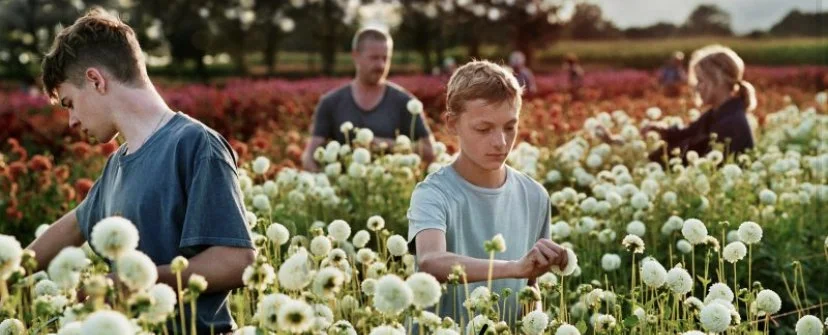Swedish filmmaker Lukas Dhont’s “Close” was screened last night and, suffice to say, the film has everybody talking this morning. Will the filmmaker-heavy jury go for it?
A carefully crafted campaign was concocted yesterday to plant the seed, so to speak, to make it a contender. In the morning, we heard that A24 had picked up the film for US distribution. Then, immediately after, Scott Feinberg tweeted that it was “great” and “may well be the eventual the Palme d’Or winner.” This upped the ante and had everyone here excited to see it.
Dhont’s film starts off fairly well in its depiction of two 13-year-old boys, Leo (Eden Dambrine) and Remi (Gustav De Waele), who are very close friends, but there’s clearly something going on there. They seem inseparable, a little too touchy for the “just friends” label.
Then, one of the girls in their class, politely, asks them if they are in a relationship, they deny it but something snaps in Leo. It doesn’t help that he also bears the brunt of getting taunted with homophobic slurs during recess. Remi just looks on and does nothing.
Leo starts to back up a bit and hang out with the other kids, Remi doesn’t understand why and anger seeps into their friendship. There are no more sleepovers, no more lunches together and an overall sense that Leo is growing into a whole other person and changing, as most do in high school.
The first 50 or so minutes of Dhont’s ”Close” are beautifully understated, there’s a finesse to the filmmaking, and cinematographer Frank van den Eeden’s flower-soaked photography, that recalls the talents he displayed in 2019’s “Girl.” But then a plot twist occurs, and it completely destroyed the movie for me. It’ll be the breaking point for many as to whether or not the movie actually worked for them.
Dhont seems to revel in the suffering of others, to the point where he turns Leo and Remi’s tale into an exhausting push for tears and more tears. Alas, “Close” sadly turns into an emotionally manipulative film, and Valentin Hadjadj’s violin-tinged score only makes it worse.
There’s a way to tell this story, but this is not it. The 31-year-old Dhont is an incredibly talented filmmaker, he knows how to frame and move the camera with the kind of agility and finesse that makes him someone to watch very closely in the years to come. His ability to tell a story in tasteful ways is a whole other thing. [B-/C+]






